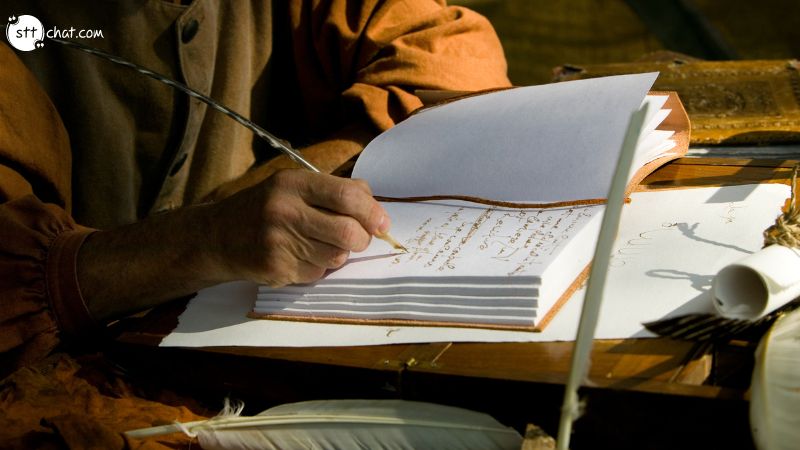In the realm of philosophical thought, few figures are as enigmatic and profound as Lao Tzu, the ancient Chinese philosopher and founder of Taoism. His teachings, embedded in the timeless work Tao Te Ching, offer insights into living a harmonious and balanced life. One of his compelling quotes, “Do your work, then step back. The only path to serenity,” encapsulates a profound approach to work and life. In this blog, we’ll delve into the meaning and implications of this quote, exploring how it can guide us toward inner peace and fulfillment.
1. The Essence of the Quote
At its core, Lao Tzu’s quote emphasizes the importance of action coupled with detachment. The idea is simple yet powerful: engage fully in your tasks, but know when to let go and step back. This principle speaks to the balance between diligent effort and the wisdom of detachment, a central theme in Taoist philosophy.
2. Doing Your Work: The Role of Effort and Commitment
Lao Tzu’s directive to “do your work” underscores the value of dedication and effort. In any endeavor, whether personal or professional, it’s essential to apply oneself with focus and diligence. This active engagement is not just about completing tasks but about immersing oneself in the process with integrity and commitment.
Effort is a crucial component of success and satisfaction. When we fully engage in our work, we bring our best selves to the task at hand. This alignment with our goals and values fosters a sense of accomplishment and purpose. Moreover, the quality of our work often reflects the level of our commitment, impacting both our personal growth and the broader outcomes we aim to achieve.

When we fully engage in our work, we bring our best selves to the task at hand. Source: Internet
3. Stepping Back: The Art of Detachment
The second part of the quote, “then step back,” introduces the concept of detachment. This might seem counterintuitive at first—how can stepping back be beneficial if one is deeply invested in their work? However, Lao Tzu’s wisdom lies in recognizing the need for balance.
Stepping back means creating space between ourselves and our efforts. It’s about letting go of the need to control every outcome and accepting that some things are beyond our influence. This detachment doesn’t imply abandoning our responsibilities but rather allowing ourselves to release attachment to specific results or outcomes.
When we step back, we gain a broader perspective. This pause provides clarity and insight that is often obscured by the intensity of our involvement. It allows us to reflect on our actions, assess their impact, and adapt our approach as needed. This process is crucial for maintaining mental and emotional wel
4. The Path to Serenity: Finding Balance
The quote’s conclusion, “The only path to serenity,” highlights the ultimate goal of this balance between effort and detachment. Serenity is a state of inner peace and calm that arises when we align our actions with our values while remaining unattached to specific outcomes.
Serenity is not achieved through forceful control or relentless striving but through the harmonious interplay of action and detachment. By doing our work with dedication and then stepping back to reflect and release, we create a space where inner peace can flourish. This balance allows us to handle challenges with equanimity and to appreciate the journey rather than being solely focused on the end result.
5. Practical Applications in Daily Life
Understanding and applying Lao Tzu’s quote can transform various aspects of our lives. Here are some practical ways to integrate this wisdom:
-
Work and Career: Approach your job with commitment and enthusiasm. Invest your energy in your tasks but recognize when to step back and let go of excessive worry about outcomes. Trust that your efforts will bear fruit and allow yourself to be at peace with the results.
-
Personal Relationships: Engage fully in your relationships, offering support and love. However, respect boundaries and avoid trying to control others. Step back when necessary to give space for personal growth and mutual understanding.
- Personal Growth: Pursue your goals with dedication, but also allow yourself time for reflection and relaxation. Recognize that personal development is a journey, and being at ease with where you are in the process is key to maintaining serenity.

Pursue your goals with dedication, but also allow yourself time for reflection and relaxation. Source: Internet
Conclusion
Lao Tzu’s quote, “Do your work, then step back. The only path to serenity,” offers profound wisdom for achieving balance and inner peace. By committing fully to our tasks while also embracing the art of detachment, we cultivate a sense of serenity that enhances our overall well-being. This philosophy encourages us to engage in our endeavors with purpose and passion while remaining open to the natural flow of life. In practicing this balance, we find not only success but also a deeper, more enduring peace.






